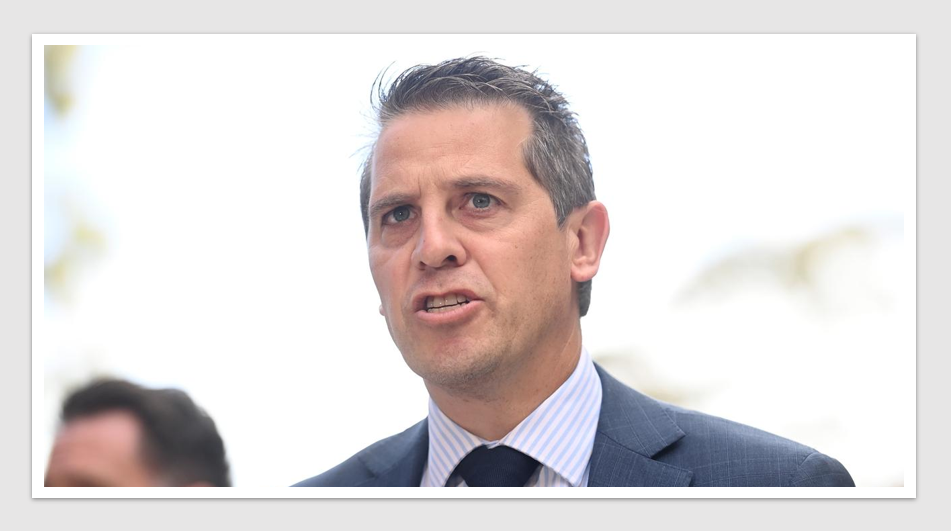News & Trends - MedTech & Diagnostics
Cardiologists call on Government to address nation’s rising rate of undiagnosed valvular heart disease

MedTech News: Australian cardiovascular experts have revealed the number of people with valvular heart disease that could lead to serious complications is rising rapidly, particularly as the population ages.
A new whitepaper, titled Our Hidden Ageing – Time to Listen to the Heart, developed by experts at the Baker Heart and Diabetes Institute and funded by an unrestricted educational grant from Edwards Lifesciences, shows more than half a million Australians have valvular heart disease, including stenosis and regurgitation.
Perhaps more concerning, is that more than a quarter of a million Australians have faulty heart valves, and are at risk of serious complications, and don’t know it. These complications include heart failure, stroke, blood clots, heart rhythm abnormalities, and even death.
The number of undiagnosed cases of valvular heart disease is projected to spiral in the ensuing three decades, to 336,000 cases in 2031, and 435,000 in 2051, placing a heavy burden on our nation’s healthcare system, ageing population, and economy.
Cardiologist, Director and Chief Executive of Baker Heart and Diabetes Institute, and lead author of the whitepaper, Professor Tom Marwick said “Ageing causes the blood vessels to progressively lose elasticity and become stiff, impacting the vascular structure and function. This arterial damage increases mechanical stress on the valves, which are also susceptible to the same threats.
“A heart murmur is often the first symptom of heart valve disease,” Professor Marwick stated.
“It is important to keep in mind that the common symptoms of heart valve disease – especially exercise intolerance – are often misattributed to ‘old age’.”
Aortic valve disease is the most frequent cause of severe valvular heart disease. Its most common manifestation is aortic stenosis – a moderate-to-severe narrowing of the aortic valve. Cases of aortic stenosis are predicted to climb to 200,000 in 2031, and 266,000 in 2051, respectively.
Although serious, Professor Marwick said that valvular heart disease is increasingly treatable.
Previously, people living with aortic stenosis had few options to replace their unhealthy aortic valve, including open heart surgery. These days however, aortic stenosis is the most treatable valve lesion due to the development of non-surgical valve replacement, such as transcatheter aortic valve implantation (TAVI) manufactured by Edwards Lifesciences and Medtronic.
This is currently considered for people with severe and symptomatic aortic stenosis. However, untreated, moderate stenosis may also have an adverse impact. While trials are under way for these indications at present, economic modelling in the whitepaper showed that offering a TAVI for people aged 65 years and over could potentially prevent $117 million in productivity loss in a single year due to withdrawal from productive activities.
Professor Marwick [together with other cardiovascular experts nation-wide] is calling on the Federal Government today to help address the nation’s rising rate of undiagnosed valvular heart disease.
“We need increased awareness through marketing campaigns; strategies to upskill and support primary care; financial support for the use of emerging technologies; health service design, including improved access to echocardiography; funding to improve access and equity to interventions; and development of national heart valve disease guidelines,” he said.
“Heightened awareness and education is critical to ensuring older Australians are aware of this disease, and to adequately support GPs to identify people at risk, and provide appropriate treatment before they develop a major cardiovascular problem.”
Professional weaver, mother-to-one and grandmother-to-two, Gerlinde, 77, Melbourne, was informed by her GP about a potential heart murmur.
“Even after my doctor identified my heart murmur in 2019, other than fatigue, I showed no other symptoms of heart valve disease,” said Gerlinde.
Later that year however, Gerlinde’s heart health severely declined, and she was rushed to hospital while gasping for breath.
In mid-July 2020, Gerlinde underwent a TAVI procedure, and four days later, had a pacemaker fitted to help maintain a healthy heart. Following her procedure, Gerlinde was placed in a cardiac health support programme led by allied health professionals, involving education, exercise and rehabilitation.
Today, Gerlinde wishes to share her experience of living with heart valve disease (HVD). “Up until recently, I had never even considered myself at risk of developing HVD. Given I had few symptoms, and was able to perform daily activities, my heart health was never top of mind for me. That’s why I firmly believe that Australians should be both informed, and aware of the various risk factors for developing HVD, and the different treatment options available.”
Professor Marwick said performing a thorough physical examination of the cardiovascular system, including auscultation, should form part of an annual GP check-up for every Australian over 65 years of age.
“Any abnormalities should then be further examined via echocardiography – the test of choice for valvular heart disease.
“Doctors should also take advantage of innovations in detection, diagnosis and treatment of valvular heart disease. The use of the digital stethoscope and handheld ultrasound may vastly improve the detection of valvular heart disease in the community,” he commented.
“We must all keep in mind that valvular heart disease can go unrecognised, undiagnosed, and untreated, and the complications can be devastating.”
News & Trends - MedTech & Diagnostics

Pathology reforms: Frozen fees, windfall gains, and the fight for bulk-billing
Diagnostics & MedTech News: For nearly a quarter-century, pathology fees have remained stagnant, a situation deemed patently unfair by Australian […]
MoreNews & Trends - Pharmaceuticals

Call for coordinated policy and cross jurisdiction funding in chronic disease
Pharma News: The life expectancy of Australians is still rising, however the increased prevalence of chronic conditions and co- and […]
MoreNews & Trends - MedTech & Diagnostics

Expansion of hospital services for patients in NSW Macarthur region
MedTech & Diagnostics News: Marking a historic milestone with NSW Deputy Premier Prue Car and Health Minister Ryan Park, Campbelltown […]
MoreNews & Trends - Biotechnology

Superiority of cell-based flu vaccine revealed in RWE study
Biotech News: Vaccines stand as the primary strategy to mitigate the considerable morbidity, mortality, and economic burden associated with influenza. […]
More